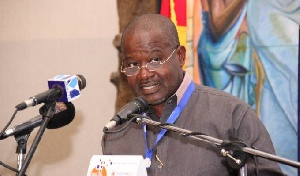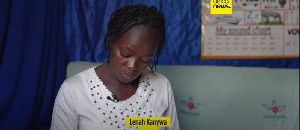Given that Ghana has now expanded its oil base in terms of exploration and production, a situation which means more oil companies will be coming into the country, the government has been asked to set aside a portion of the oil revenue to tackle sanitation-related problems in order to deal with flood disasters not only in Accra but across the country.
Kwame Jantuah, Chief Executive Officer of the African Energy Consortium, has observed that the nation is struggling with tackling sanitation problems given the flood disasters that have plagued the country, especially the capital city, over the years, probably due to lack of funding.
“I will say we have now expanded our oil base in terms of exploration and production. Between now and 2022, there will be about two or three companies producing. Let us budget some of that money because we know that the oil money comes in huge droves, let’s budget some of that money to be able to take care of some of these [sanitation] situations because we have lost lives,” Mr Jantuah said on TV3’s New Day programme Saturday June 4.
He was contributing to a discussion that centred on the observance of the June 3 flood and fire disasters that occurred at the Kwame Nkrumah Circle a year ago. Ghana marked the observance of the unfortunate incident Friday June 3. President Mahama assured that measures would be put in place to prevent such disasters.
Mr Jantuah added: “It is a question of constant education, constant planning, and also planning to get the adequate finances, that every raining season there is some money there to handle the situation.”
Meanwhile also commenting on the same programme, Abraham Amaliba, a legal practitioner and member of the communications team of the governing National Democratic Congress (NDC), said conditions in the capital city had been improved upon as against what existed last year, which resulted in the flood.
Business News of Sunday, 5 June 2016
Source: classfmonline.com













